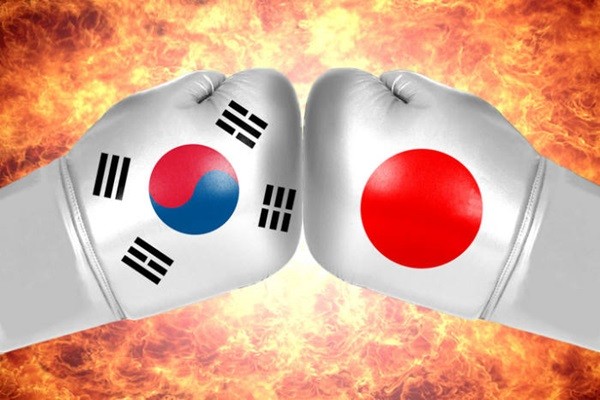It was identified that South Korean Government, semiconductor industry, and display industry have been preparing measures by predicting that Japanese Government would regulate exportation of its materials. They secured ways so that some of materials do not cause problems to supply and demand. In addition, it is confirmed that they are carrying out projects that will allow them to produce major materials domestically.
As a result, it will be interesting to see whether they can minimize aftereffect of Japanese Government’s economic retaliation targeting South Korea’s semiconductor and display industries. Also, it is expected that this issue will spur South Korea to start lessening its dependence on Japanese materials.
According to industries, it is heard that South Korea’s semiconductor and display industries already prepared measures by predicting that Japanese Government would stop exporting hydrogen fluoride.
“Japanese Government has been mentioning a possibility of stoppage to exportation of hydrogen fluoride since last year due to worsened diplomatic relationship between itself and South Korea and this prompted South Korean businesses to secure other routes for supply and demand.” said a representative who is familiar with this issue. “It seems that they decided to receive hydrogen fluoride from Taiwan.”
Hydrogen fluoride is a major material that is used for semiconductor manufacturing process. Because it is highly corrosive, it is used to remove impurities of silicon wafers. Lack of hydrogen fluoride can only lead to a setback to semiconductor manufacturing process. Japanese Government aimed after this and put hydrogen fluoride on its list of items that will be subjected to regulation.
It is confirmed that South Korean Government has been preparing medium and long-term measures such as building production lines for some of materials in South Korea.
“We have been preparing for this issue since last year.” said a high-ranking official from the Blue House. “Although this may take some time, we are currently building plants to manufacture some of materials in-house.”

Ministry of Economy, Trade, and Industry (METI) of Japanese Government stated that it would start regulating exportation of hydrogen fluoride, photoresist, fluorine polyimide and transfer of manufacturing technologies to South Korea from starting from the 4th. Although it had given preferential treatment in the past, it has decided to screen every case of exportation.
Its attempt is to pressure South Korean Government by regulating exportation of its materials that can place setbacks to production of semiconductors and displays that are very important to South Korean economy. Photoresist and hydrogen fluoride are usually used for manufacturing of semiconductors while fluorine polyimide is used for displays such as OLED and LCD.
However, it will be interesting to see how Japanese Government’s sanction that will pressure major industries in South Korea will start to change as it is heard that South Korean industries have been preparing measures since last year. If these measures can help minimize aftereffects, South Korean Government and industries will be able to buy time while they seek to file a lawsuit through WTO (World Trade Organization) and to negotiate with Japanese Government.
Some say that South Korea will have the upper hand if it decides to file a lawsuit through WTO.
“Filing a lawsuit through WTO will be more advantageous for us.” said a high-ranking official from South Korean Government. “Japanese Government will be criticized as its sanction is only targeting us.”
Photoresist is the key. Many experts agree that it will be difficult to find a replacement or to localize photoresist at the moment. Some South Korean businesses are currently manufacturing fluorine polyimide.
Ministry of Trade, Industry and Energy stated that it has been preparing for this issue and that it has worked with South Korean businesses about localizing semiconductor materials.
South Korean industries are quickly securing Japanese materials while this sanction will only tightens regulation on exportation. They are trying to stock their inventories with Japanese materials while they can freely import Japanese materials at the moment.
Some are stating that there needs to be rapid process of localizing semiconductor and display materials upon this issue.
“We once again realize how important semiconductor ecosystem including relevant instruments and materials is to South Korean economy.” said a representative of a semiconductor business. “There needs to be measures to promote small and medium businesses rather than solely focusing on major corporations.”
Staff Reporter Yun, Geonil | benyun@etnews.com & Staff Reporter Kang, Hyeryung | kang@etnews.com